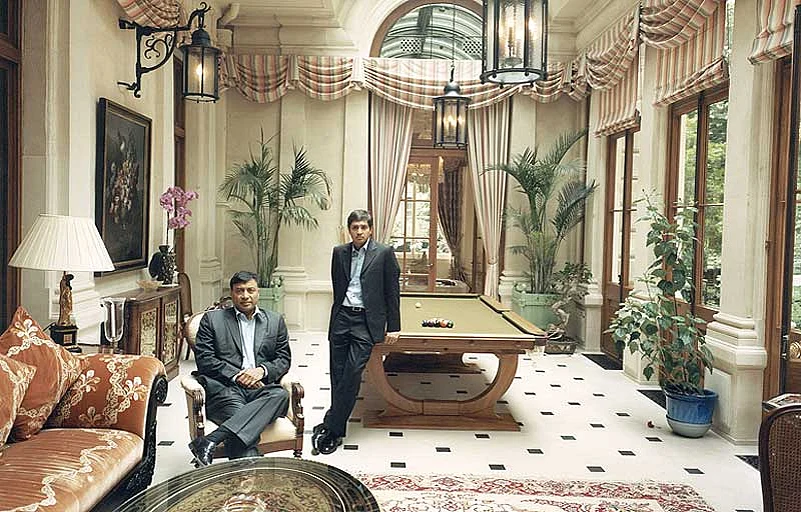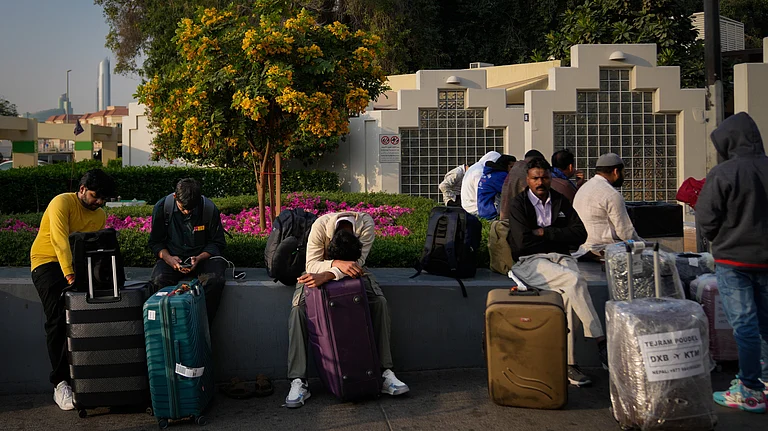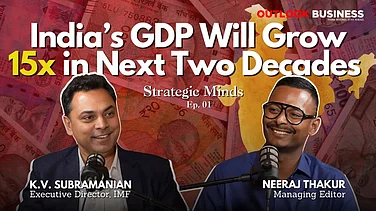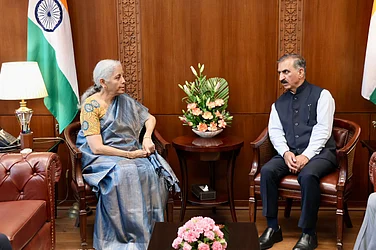Points To A Marwari
- Will sell anything Ready to get into any business, however small
- Frugal Marwaris’ fabled frugality has often been a subject of jokes
- Conservative Marwaris are sticklers for tradition, their women marry early, seldom given business roles
- Overtly religious Religion is an essential part of Marwari life
- Joint living Most Marwaris still stay in joint families—often three or four generations together
- Vegetarians Marwaris are staunch vegetarians, even new-age Marwari kids stick to this
***
Bachi Karkaria’s Behind The Times serves up a delightful story on the Times Of India’s Samir Jain that highlights a key trait of the Marwari—thrift. The scene: the hotel lobby at an international advertising conference. Karkaria writes: “Once Indira Deish (of Times Response), while taking her room key, instructed the receptionist to give her a wake-up call, and send a pot of bed tea with it. She felt a tap on her shoulder, turned around and saw VC (Samir Jain): ‘He put his hand into his suit pocket, pulled out something, and put it in my palm. It was a couple of tea bags. After that, I always carried a box of these, and ordered only hot water. I learnt the value of thrift’.”
That’s the Marwari for you, India’s archetypal business class of brokers, traders, financiers and businessmen. They have been called traditional, conservative, clannish and parsimonious. Yet, where it matters, in business, they are phenomenally successful and have been so for generations, writing and re-writing Indian business history. Their roots lie in Shekhawati, an arid part of Rajasthan. Outside the state, they got into money-lending, satta and supplying provisions for the army. Later, they transformed into traders, and in the 1920s and 1930s came into manufacturing at Calcutta—the capital of British India and one of the fastest growing cities anywhere in the 19th century, when many Marwaris settled there.

| Archana Garodia Gupta, Owner, Touchstone Jewellery | Harsh Pati Singhania, MD, JK Paper |
Psychologically, it is difficult for most Marwaris to work for others. They have a ferocious work ethic, spawning many workaholics—you get up in the morning and start working and you work till you sleep. The only pastime is charity and community service. “What makes them special, allows them to excel is high internal trust, an understanding of capital and interest, a culture of pragmatism. There’s also a social conservatism that preserves these qualities and passes them along,” says business author Aakar Patel.
Despite their successes, Marwaris continue to be conservative in their approach. They still follow the old system of close financial control over their firms and take daily stock of money matters. Marwaris have confined themselves to traditional brick-and-mortar or old-economy businesses like manufacturing and shied away from new age and internet businesses. Business historians say this is because their unique set of talents are a perfect fit for old-style commerce, while software businesses do not necessarily need the typical skills they have been honing through generations.

| Harsh Goenka, Chairman, RPG Enterprises | K.M. Birla, Chairman, Aditya Birla Group |
Typically, Marwaris lived in joint families and grew up in a business environment. “They live in an atmosphere where there is business all around. All family discussions were related to business. This brought about a commercial thought process and influenced youngsters,” says Harsh Pati Singhania, MD, JK Paper. Marwari progeny were exposed to this influence from early on. Education, as a Marwari said, is often “considered a hobby”. While scions of modern Marwari families are increasingly going overseas for studies, the community remains conservative.
Former IIM Ahmedabad professor and business historian Dwijendra Tripathi says, “Till recently, the tradition of high education did not exist in Marwari families. The thinking was education can wait, business can’t. So they preferred to push youngsters into family business.” Singhania remembers his college days when he’d go to a morning college that got over around 10:30 am and then would have to go to the family business “office”.

| Sachin Taparia, Entrepreneur |
Sachin Taparia, in contrast, is a modern Marwari. Despite having typical Marwari roots, he not only studied engineering but also went to the US for further education and worked as a management consultant and in an aviation components business there before returning. Like a true Marwari, he is launching his own business, but in an area few Marwaris would dare to tread. Sachin’s e-commerce intermediary business will be launched in the next few months.
In modern times, few new businesses are emerging from Marwari families, while traditional Marwari businesses continue to thrive. That, business experts and historians say, is because of the change in the nature of modern business. “The answer lies in the nature of capital formation in a world dominated by the multinational corporation. One needs vast sums to compete and these are available only to a few,” says Patel. At the same time, older Marwari businesses have not faded out, as young blood ensures continuity of business tradition and conservatism—with a success that’s enshrined in Forbes’s ‘world’s richest people’ lists, which come with a fair sprinkling of Marwari names.
But what has ever stopped the formidable Marwaris venturing into uncharted territories if it means good business? We have seen the successes of Marwari-led Patni computers in IT and Polaris in software. The new Harvard/Stanford-educated generation is mixing professional training with family business wisdom and is willing to get into new areas. It’s not for nothing that Marwaris still take pride and believe in their own old adage: “Jahan na jaye gaari, wahan jaaye Marwari”.


















